Oh hey.
 I love getting to kick off WTH with good news. I spend 70 percent of this newsletter yelling about how we all need to call our legislators and 20 percent talking shit about bad legislation — but that leaves 10 percent for celebrating. So that’s what we’re doing first.
I love getting to kick off WTH with good news. I spend 70 percent of this newsletter yelling about how we all need to call our legislators and 20 percent talking shit about bad legislation — but that leaves 10 percent for celebrating. So that’s what we’re doing first.
Subscribe to What the Helena here.
Good News Crew
A bill to establish Indigenous People’s Day in place of Columbus Day passed the House this week! Hell yeah. I’m ready to drop kick Columbus into the past where he belongs. The House tried to kill Columbus Day last session and it died in a Senate committee, but that year the proposed new holiday was Montana Heritage Day. This is better.
For those of out there that think that Columbus Day celebrates the quaint town that serves as a gateway to the Beartooths (*ahem* Rep. Mandeville), you’re wrong. Columbus Day celebrates the dude who committed genocide against indigenous people across the Americas. He’s terrible. Columbus, MT is not. Also, notable that Columbus, MT is on the historical land of the Apsáalooke peoples, as Rep. Stewart Peregoy pointed out on the House floor.
Also, the 6 Mill Levy permanency bill passed in the Senate! This bill would make the 6 Mill funding for the Montana University System permanent, instead of expiring every ten years. Montanans have approved this funding for seventy years, and it’s time for advocates and students to focus their energies on improving Montana, instead of campaigning every decade for the same funding.
These are definitely victories, but we’ve still got a long road ahead for both bills. I’ll let y’all know as soon as I have info about next steps to keep these bills going! Find out how your legislators voted on 6 Mill Permanency and Indigenous People’s Day, and if your legislator voted in favor of either of these, drop them a note to say thanks!
On the Salty Side
Oh, did you think I’d gone all warm and fuzzy on you? THINK AGAIN.
 I am UPSET about HB 380, which would have penalized bad landlords for wrongfully withholding security deposits, being tabled in committee (Check out the cool instagram story that Rep. Emma Kerr-Carpenter made about it.) The legislature is stacked with landlords who are acting and voting in their own business interests, and I have had it up to here.
I am UPSET about HB 380, which would have penalized bad landlords for wrongfully withholding security deposits, being tabled in committee (Check out the cool instagram story that Rep. Emma Kerr-Carpenter made about it.) The legislature is stacked with landlords who are acting and voting in their own business interests, and I have had it up to here.
Also, remember last week when I talked about Sen. Roger Webb’s terrible bill that would allow landlords to send their tenants’ debt to collection agencies without a court judgement? It was tabled in committee at the time, but like the goddamn undead, it’s back. SB 184 passed out of committee and will be heard on the Senate floor. Call your senators and tell them to vote no! (406)444-4800!
This Week in Medicaid Rants: Hittin’ Ya with the Sweet Sweet Data
A new study from George Washington University shows that the work requirements proposed in a draft of Sen. Ed Buttrey’s Medicaid expansion bill, MeRIA, will cause around a third of Montana Medicaid participants to lose their health coverage.
 You didn’t have to be Raven Baxter to see this coming.
You didn’t have to be Raven Baxter to see this coming.
“In total around 31,000 to 43,000 Montanans would lose coverage.” Leighton Ku of GWU told MTPR about Buttrey’s bill. “Most of that is due to the work requirements.”
Among those most likely to be kicked off the program? Parents of young children, those with a dependent with a disability, students, and people in rural areas. Basically, the same people that Medicaid expansion is designed to help!
Ku also went into how the draft of Buttrey’s bill is actually stricter than work requirements implemented in places like Arkansas. Other policies have exempted parents with children of all ages and all pregnant women — but the MeRIA draft only exempts parents of children under seven and pregnant women who can prove that meeting requirements would pose a risk to their pregnancy.
The full study is fascinating and also scary. You should read it if you’re invested in the health of Montana. The bill isn’t formally introduced yet, but you’d better believe we’re gonna come out swinging when it is. In the meantime, support HB 425, which would continue Medicaid Expansion without work requirements and is up for a hearing in mid-March.
Villain of the Week
Speaking of politicians ignoring research and data…
Everyone please take a moment to center yourself before reading the following paragraph.
 Rep. Joe Read has a bill that would enshrine climate change denial into state law. The bill denies the existence of climate change and claims that leading climate scientists don’t understand physics. It calls for teaching climate change denial in public schools and discourages any future action on climate in Montana.
Rep. Joe Read has a bill that would enshrine climate change denial into state law. The bill denies the existence of climate change and claims that leading climate scientists don’t understand physics. It calls for teaching climate change denial in public schools and discourages any future action on climate in Montana.
WHAT THE ACTUAL HELENA, JOE READ!
Read also had a bill in 2011 that declared that global warming was a natural occurrence and “beneficial to the welfare and business climate of Montana.” There’s a hearing for his current climate denial bill, HB 418, on Monday.
Villain of the Week — Part Deux
Oooof. What Joe Read said was bad, but at least it wasn’t suuuper racist. Yes, folks, that’s right we’ve got another contender for Villain of the Week: Rep. Greg Devries. On Thursday, the floor got pretty heated around Rep. Devries bill that would amend the Montana constitution to define personhood as starting at conception (HB302). Devries decided it was appropriate to address the Montana Indian Caucus directly on the subject saying “Abortion is a plague on Indian culture and a genocide against your own children. One cannot value and celebrate a culture if that culture is murdering a future generation.”
WHAT THE ACTUAL HELENA, GREG DEVRIES.
Rep. Devries apologized today after the Montana Indian Caucus called him out — the literal least he could do. The reality is that reparations need to be paid to our indigenous friends and neighbors for racist and oppressive bullshit that they’ve endured and continue to endure. Consider making a donation to a native-led organization today. We particularly love the work of our friends at Western Native Voice.

That’s all for now. I promise I’ll keep mentioning the good news, even if it doesn’t seem like a lot sometimes.
See you next Sunday.

Margaret Grayson is Forward Montana’s Legislative Communications Fellow. A recent graduate of University of Montana, Margaret spent three years with the Montana Kaimin as a reporter and editor and interned at the Missoula Independent (RIP). Now she writes jokes for the internet and works to educate young folks about the legislative session.

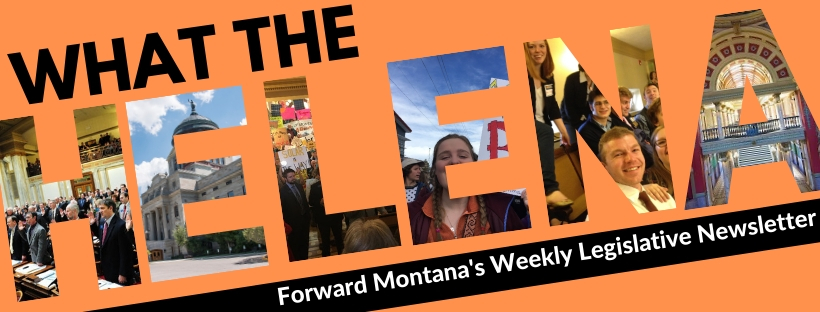
 If this week’s newsletter had a theme, we’d be calling it Money Week. Yes, we talk about money a lot here and in the Capitol, but this week is special because we are talking! about! taxes! There has maybe never been anyone as hyped to write about revenue streams as I am right now, but that’s because of the never-ending supply of money-related gifs available to me.
If this week’s newsletter had a theme, we’d be calling it Money Week. Yes, we talk about money a lot here and in the Capitol, but this week is special because we are talking! about! taxes! There has maybe never been anyone as hyped to write about revenue streams as I am right now, but that’s because of the never-ending supply of money-related gifs available to me.
 NOW we get to talk about spending money, which everybody knows is much more fun than trying to make it. Governor Bullock has proposed $22 million for public preschools and another $8 million to continue the STARS grant program, which funds Head Start and other programs.
NOW we get to talk about spending money, which everybody knows is much more fun than trying to make it. Governor Bullock has proposed $22 million for public preschools and another $8 million to continue the STARS grant program, which funds Head Start and other programs. 
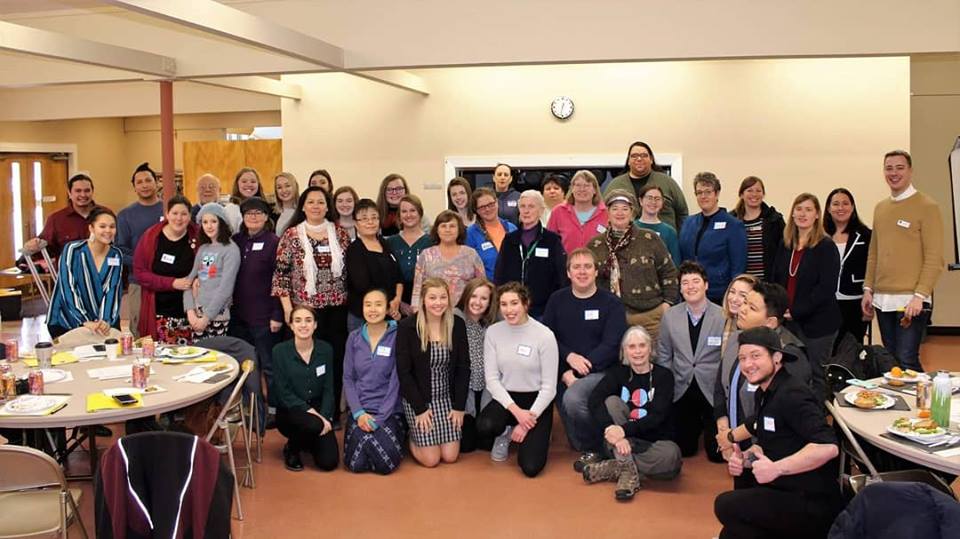

 This week, FMT staffers testified on behalf of
This week, FMT staffers testified on behalf of  There’s no proof that strict requirements for earning health coverage increases long-term employment. There’s actually
There’s no proof that strict requirements for earning health coverage increases long-term employment. There’s actually  Senate Bill 143 took a brief run at ending election-day voter registration before it was tabled in committee on Wednesday, which means it’s more than likely dead. Montanans voted overwhelming in favor of Election Day Registration in 2014, but apparently we have to keep reminding some legislators that voting should be accessible and equitable. Goodbye, bad legislation. You will not be missed. And a HUGE shout-out to everyone who contacted their legislators. Your voices were heard!
Senate Bill 143 took a brief run at ending election-day voter registration before it was tabled in committee on Wednesday, which means it’s more than likely dead. Montanans voted overwhelming in favor of Election Day Registration in 2014, but apparently we have to keep reminding some legislators that voting should be accessible and equitable. Goodbye, bad legislation. You will not be missed. And a HUGE shout-out to everyone who contacted their legislators. Your voices were heard! Cue “Just Got Paid” by NSync.
Cue “Just Got Paid” by NSync.

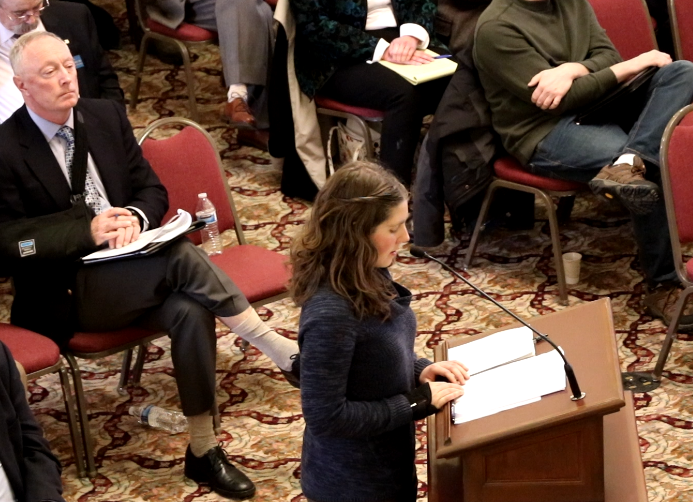
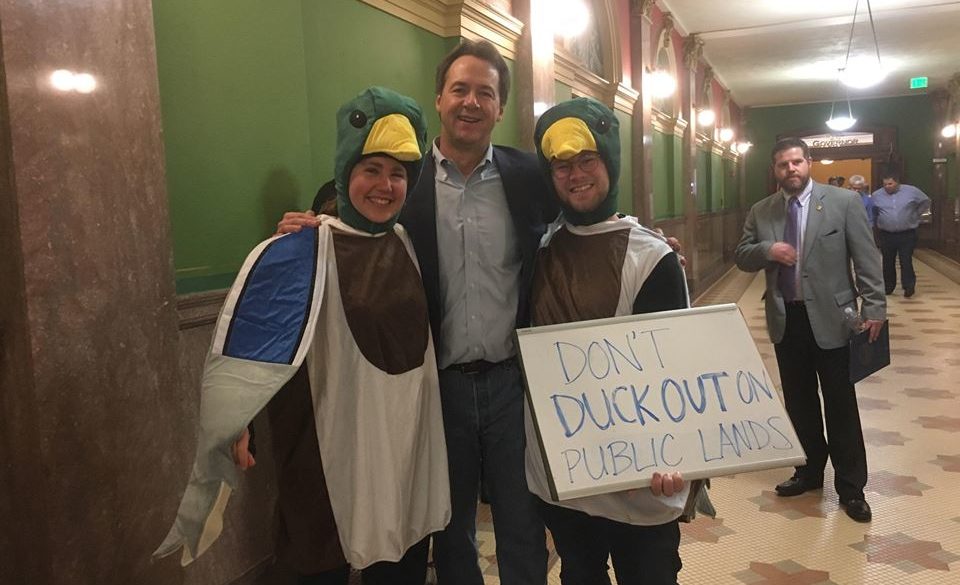
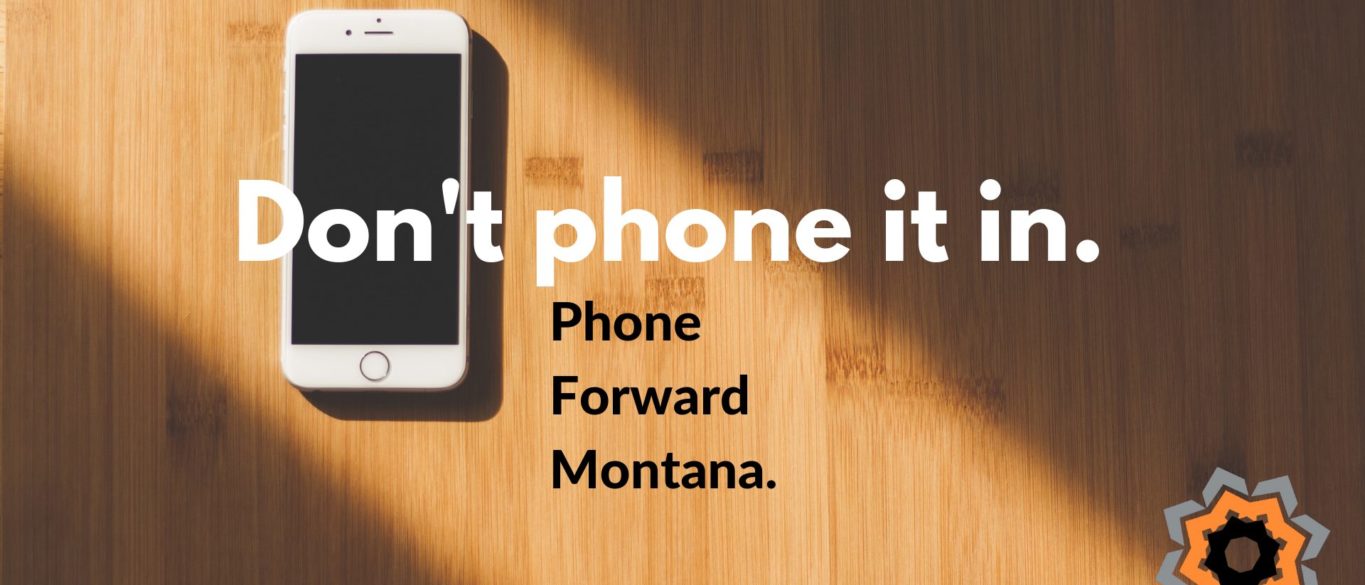




 It’s super easy to get caught up in the minute, ever-changing details of the leg session — it’s enough to give anyone the January blues. Here is my offering to help ward them off:
It’s super easy to get caught up in the minute, ever-changing details of the leg session — it’s enough to give anyone the January blues. Here is my offering to help ward them off: 
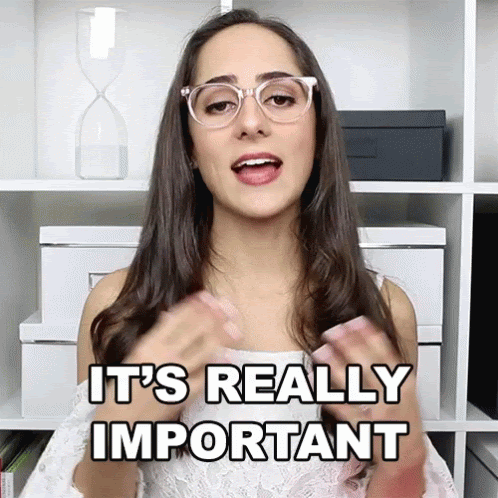 Medicaid expansion is set to “sunset” this year, which is a strangely passive-aggressive codeword for “if we don’t fund it again, it will die and tens of 1000s of people will lose their health insurance.”
Medicaid expansion is set to “sunset” this year, which is a strangely passive-aggressive codeword for “if we don’t fund it again, it will die and tens of 1000s of people will lose their health insurance.”